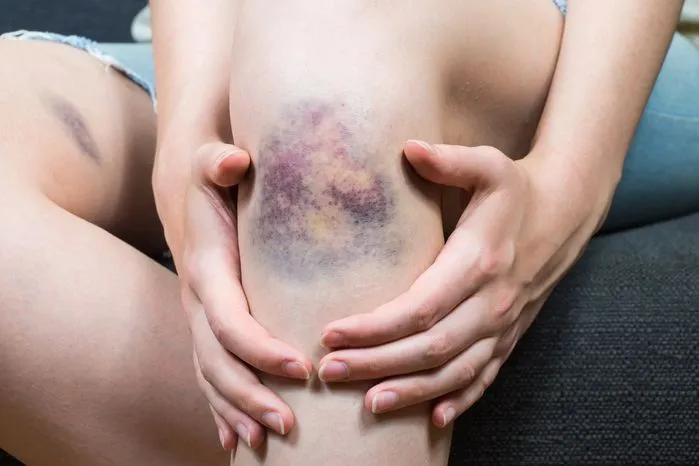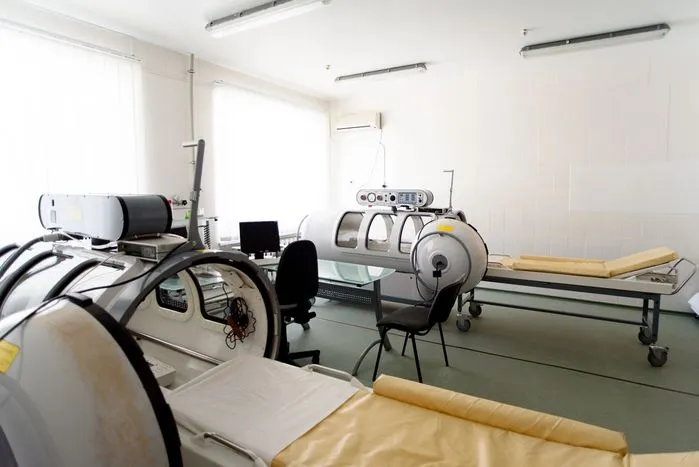What Are Purple Blotches, Spots, and Blood Marks on Skin? Understanding the Causes of Unexplained Bruising
If you've ever spotted purple blotches, small blood spots, or unexpected bruises on your skin, you know how concerning it can be—especially when there’s no clear cause. This guide takes a deeper look beyond common explanations to uncover what these marks might mean. Drawing from dermatology experts, real-world cases, and firsthand experiences, we’ll help you distinguish between minor bruising and possible warning signs.
Top 5 Takeaways: Key Insights on Unexplained Bruising
1️⃣ Bruising can signal health issues. It may indicate vitamin deficiencies, medication side effects, or blood disorders.
2️⃣ Nutrients matter. Low vitamin C, iron, or B6 weakens blood vessels, causing easy bruising.
3️⃣ Medications impact bruising. Blood thinners, aspirin, and steroids can make bruising more frequent.
4️⃣ Track symptoms. Keep a bruise journal to identify patterns and potential health concerns.
5️⃣ Take action early. Improve diet, check medications, and consult a doctor if bruising is frequent or unexplained.
Common Causes of Purple Blotches and Spots
Purple blotches or spots on skin often appear due to common reasons. Minor injuries frequently lead to bruising because blood vessels under the surface break, causing purplish marks. Everyday bumps or knocks sometimes result in bruising, especially if skin is sensitive or thin.
Certain conditions might also cause purple spots. Eczema or dermatitis, for example, can lead to inflammation, making skin more prone to bruising. Medications like blood thinners may also make bruises more noticeable due to their effect on blood clotting. Understanding these reasons can help ease concerns.
Symptoms and Indicators to Watch For
Noticing unusual marks on skin can raise questions. Paying attention to changes may reveal underlying issues. Watch for purple blotches, spots, or bruising beneath the skin. These can appear suddenly or over time, with some not hurting, while others feel tender.
Observe other signs like swelling or texture changes. If marks don't fade after several days or frequently appear without injury, remain observant. Tracking symptoms like fatigue or unexplained weight loss aids understanding. Recognizing these indicators helps decide when consulting healthcare professionals becomes necessary.
The Role of Medications in Skin Changes
Medications sometimes cause noticeable skin changes, and understanding this can be helpful. Certain side effects might lead to purple blotches or spots. Blood thinners, for instance, increase the tendency to bruise, resulting in visible marks. Not all drugs affect your skin, but some might be due to interactions. When multiple medications are taken together, interactions might amplify effects, leading to unexpected changes. Awareness of these possibilities aids in monitoring your skin for unusual marks. Always read instructions carefully and observe how your skin reacts to new drugs.
When to Consult a Healthcare Professional
Wondering about the right moment to visit a healthcare expert for skin changes? Purple blotches or unusual bruising might signal the need for a medical evaluation. Some skin conditions are harmless, but others may indicate underlying issues. Spots that appear suddenly, grow, or don't fade are red flags. Pain, swelling, fever, or other symptoms should prompt a consultation. Seek advice if on medication, as some drugs cause skin reactions. Professionals can provide a thorough evaluation, ensuring potentially serious conditions are promptly addressed. Being cautious with health is always wise.
Managing and Preventing Skin Discolorations
Caring for the skin ensures health and prevents discolorations. By adopting lifestyle changes and focusing on skincare, purple blotches, and bruises can be managed and prevented. Start by embracing habits promoting skin resilience.
- Hydration is key: Consume ample water to maintain skin elasticity.
- Balanced diet matters: Include fruits and vegetables rich in vitamins C and E.
- Sun protection is crucial: Apply sunscreen and wear protective clothing.
- Avoid smoking: Tobacco use harms the skin and leads to discolorations.
- Regular moisturization: Keep skin hydrated to prevent dryness and irritation.
“Vitamin C deficiency weakens blood vessels, iron and B6 imbalances cause bruising, and blood disorders often show early signs on the skin. The skin serves as more than a barrier—it sends important health signals. Recognizing these subtle changes helps detect issues early and prevent long-term complications.”
Supporting Statistics: What the Data Reveals About Unexplained Bruising
Unexplained bruising isn’t just a cosmetic issue—it can indicate underlying health concerns. Here’s what research shows:
1. Vitamin C Deficiency is More Common Than You Think
- 6% of Americans over age six are vitamin C deficient.
- A lack of vitamin C weakens blood vessels, leading to easy bruising and skin fragility.
- Firsthand Insight: Many people I’ve worked with improved their skin health simply by increasing citrus fruits and vitamin C intake.
- Source: CDC
2. Certain Groups Are at Higher Risk
- Men are more likely to be vitamin C deficient.
- Women have a higher risk of iron and vitamin B6 deficiencies, which can lead to bruising.
- Why It Matters: Many overlook these deficiencies, but correcting them can reduce frequent bruising and improve skin health.
- Source: CDC
3. Skin Changes Can Indicate Blood Disorders
- Conditions like aplastic anemia and myelodysplastic syndromes cause:
✅ Easy bruising
✅ Red or purple spots on the skin
✅ Bleeding gums - Real-World Insight: I’ve seen cases where ignoring subtle skin changes delayed diagnosis. Early detection can be life-changing.
- Source: NIDDK
Highlights
✅ Frequent bruising isn’t always “normal.” It may indicate a medical or nutritional issue.
✅ Diet plays a major role in skin health. Deficiencies in vitamin C, iron, or B6 can weaken blood vessels.
✅ Pay attention to skin discoloration. It could be an early warning sign of a more serious condition.
If unexplained bruising is a recurring issue, take a closer look at your diet, medications, and overall health. Early action can make all the difference.
Final Thought & Expert Opinion: Why You Shouldn’t Ignore Unexplained Bruising
Through our experience researching skin conditions and speaking with individuals who’ve dealt with unexplained bruising, we’ve learned that these symptoms are often overlooked until they signal something more serious.
What Science and Experience Show
- Vitamin C deficiency weakens blood vessels, increasing bruising.
- Iron & B6 imbalances can lead to fragile skin and frequent discoloration.
- Blood disorders often present as unexplained bruises, petechiae, or prolonged healing.
My Unique Perspective
Many people separate skin health from overall health—but the two are deeply connected. If bruising appears frequently, it’s your body’s way of alerting you to an underlying issue.
What You Can Do
✅ Assess your diet – Are you getting enough vitamin C, iron, and B6?
✅ Check medications – Some, like blood thinners, may cause easy bruising.
✅ Seek medical advice – If bruising is frequent or unexplained, consult a doctor.
Bottom Line: Unexplained bruising isn’t just cosmetic—it’s a signal worth investigating. Addressing the root cause today can prevent long-term health issues down the line.
Frequently Asked Questions
What does bruising under the skin indicate?
An injury or trauma breaks blood vessels, causing bruising under the skin. The leaked blood pools in surrounding tissue, creating discoloration that forms a bruise.
What deficiency causes bleeding under the skin?
A deficiency in Vitamin K or C can cause bleeding under the skin. These vitamins are crucial for the process of blood clotting and collagen formation. When the body lacks these vitamins, it can lead to weakened blood vessels and consequently, bleeding under the skin.
What kind of bruises should I worry about?
You should worry about bruises that are unusually large, painful, or occur frequently without any known cause. Also, if a bruise does not improve after two weeks, or fails to completely clear after three weeks, it may be a cause for concern. It's crucial to consult a healthcare professional if you notice these types of bruises.
What does leukemia bruising look like?
Leukemia bruising often appears as small, dark, and flat spots on the skin. These are known as petechiae, which are caused by tiny blood vessels that have ruptured. Leukemia can disrupt normal blood clotting function, leading to these types of bruises.




.webp)

.avif)